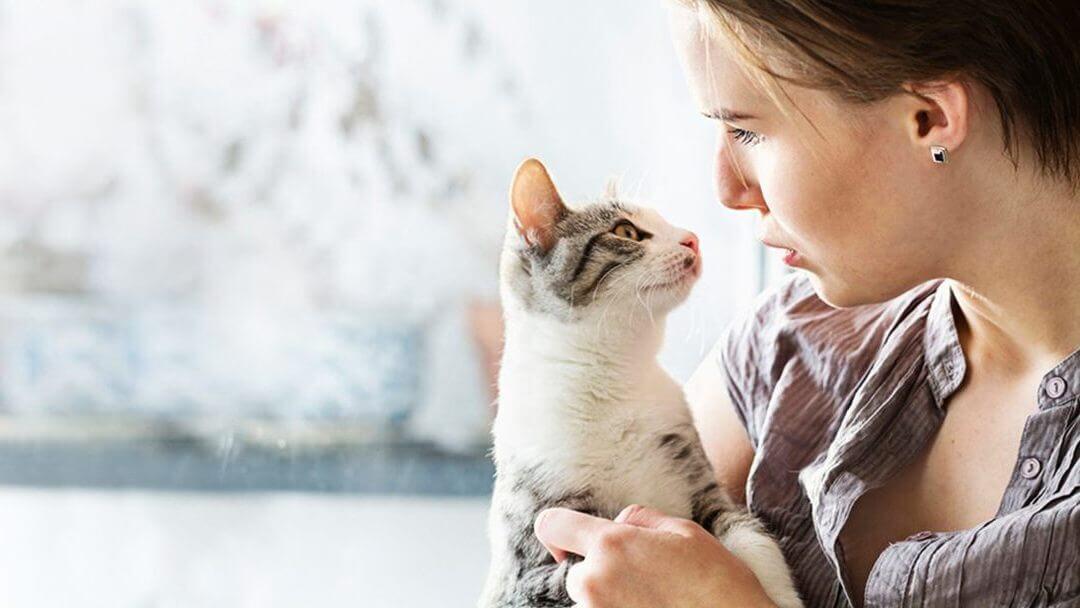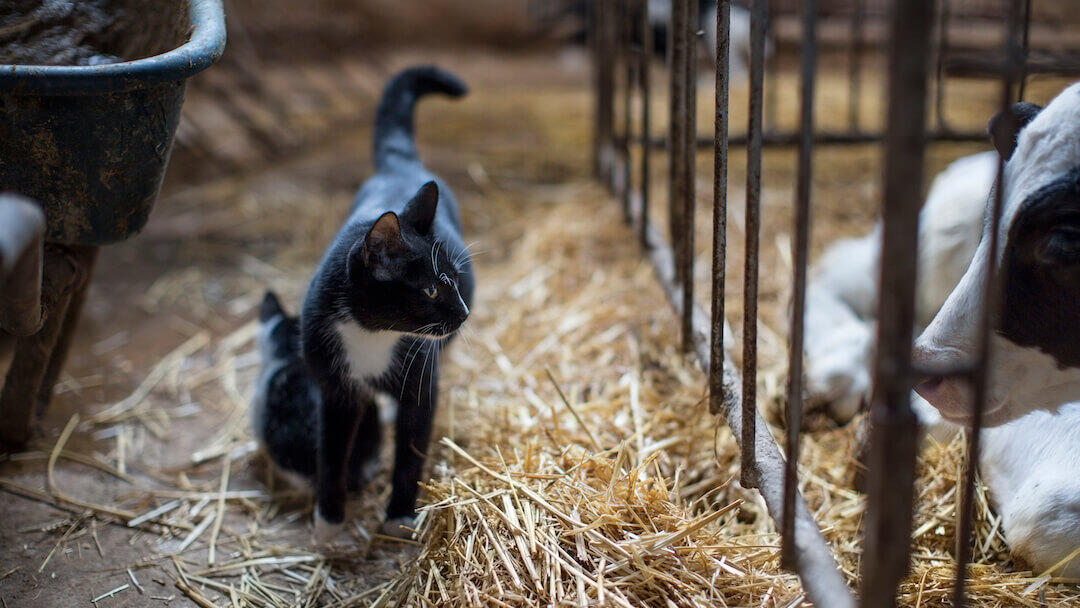
It’s common knowledge that most dogs enjoy living with other canine friends, but while usually more solitary, some cats can be social pets too. While cats tend to be more solitary, they can learn to be friendly and affectionate with other felines, depending on their personalities, breed and age. If you already have a cat and you’re debating whether it’s a good idea getting a second cat, we put together a few things to consider before taking this decision.
In this article, you’ll find the answers to some of the most common questions pet owners have regarding getting a second cat. Check them out!
Should I get another cat?
If your cat is spending a lot of time by themselves and you think they are showing signs of feeling lonely, you probably asked yourself at some point: “Should I get a second cat?”. Some cats, depending on personality and age, can benefit from the presence of another cat.
However, before you add a second furry friend to your household, it’s important to consider whether your cat would really like to share their home – and you – with another feline.
Often cats who seem lonely, bored or depressed would benefit more from increased social time with you – and much more enrichment. Cats need lots of opportunities to indulge in all the cat-like behaviours like simulated hunting games, have different heights to scale (and enjoy the view), things to climb, window sills to sit on and supervise, places to hide, things to scratch, chase games to play – and of course, chill time with you. Many cats who look lonely are just bored and don’t get an outlet for all the behaviours that make a cat’s life worth living.
Mostly it is owners that want a new cat, rather than the cat!
While some breeds and individuals are different, cats are not always keen on a new feline on the block – unless it’s one they’ve been brought up with or have been introduced to when young. And so bringing a new cat into a home with an existing cat can be a gamble – but with some thoughts and consideration, you can make this work and even, in time, they will be good friends.
Some cats are fairly social and easy-going while others can be more shy, solitary or territorial than others. When looking to get a second cat, it’s best to choose cats with complementing personalities. Having two cats at home can lead to tensions or fights, especially in the early days, even with two social cats. At the same time, having a social cat together with a timid one can lead to the latter feeling stressed. In summary, when cats are shy or show a tendency to be particularly solitary or territorial, the likelihood of encountering conflicts or problems is higher.
Younger cats are usually more welcoming of change, so you might consider getting a kitten. This way it is easier to make more gradual introductions, they can grow up understanding the current cat’s behaviour (who in turn is more likely to give them ‘kitten privileges’) and the threat to the resident cat will also be reduced as the newbie is just a baby.
Senior cats may appear calmer or more relaxed because they tend to express conflicts in a less intense manner than younger ones; however, their ability to adapt to change is lower than that of younger cats and indeed they can become highly stressed due to the activity levels of their new family member and the change to their previously quiet life.
Take into consideration the fact that introducing another feline should be gradual and it might take time until the two cats will fully be comfortable around each other – and be accepting that they might never be best friends. It can take days, weeks and even months. Watch out for signs of early aggression and limit their interactions throughout the day. Finally, it is important to stress that if the resident cat has a history of having shown aggression towards other cats before, they might not be the best candidate for introducing a new home mate.
As a recap, when you want to introduce a new cat to the household, it's important that both are highly social and as young as possible. Furthermore, the introduction of the new cat should always be gradual.
Is it better to have two cats?
If you have had a cat for some time now, you might think they seem lonely at times and wondered: “do cats get lonely without other cats?”. Cats on average need plenty of physical and mental stimulation, social interaction and enrichment, and getting another cat when you already have might help them stay active if they become friends, as they can play together and have mutual companionship. They’ll also be able to burn off excess energy and stimulate each other by playing games.
If you know you want two cats however, you are far better getting two related kittens that grow up together, as this gives you the very best chance of having two feline best friends and avoid conflict.
Will getting another cat make my cat happier?
If you feel like your cat has lots of company and enrichment, getting a second cat would not necessarily make them happier and it could even cause them stress. If, for example, you work from home, then your cat will be very happy without a feline friend (or even a canine friend) since they have you for most of the time. However, if you’re out a lot and your cat is left by themselves, then a second cat might help make them feel better if they are social.
How much space do I need for two cats?
Although cats can usually adapt to any home size, it’s important that each has their own space where they can be by themselves. Remember that cats are territorial animals so they could need to be sleeping in different rooms. This way, each cat will have their own space where they can go if they feel like being alone. The use of electronic cat doors (with microchip) can help to create two different areas where each cat feels safe. These doors only are open when one of the cats is neat to his/her door.
For two cats, have at least three beds, in each room they spend time in and make sure they have access to food, water and litter trays if you use them. There should always be at least one more of each than you have cats, ideally in quiet places and on different levels. This does take considerably more space than just having one cat.
Can two male cats get along?
Gender definitely influences cats’ behaviour – and in groups of unowned, free-roaming cats, it is nearly always females and offspring that form social groups. There have been no studies done on whether this would change with neutered males.
Behaviour of cats is much more influenced by their handling and care during the key socialisation period (between 2 – 7 weeks of age), their formative experiences, or their health condition among others, than their gender. However, keep in mind that male cats can show negative behaviours because of testosterone so it’s recommended that if they are old enough, they are neutered before you bring them home and introducing them to other pets. All cats should be neutered when they are the right age (male and female), and as well as preventing unwanted kittens, it does also reduce aggression.
Can two female cats get along?
Whether two female cats get along depends on several key factors. Cats that are raised together from a young age such as littermates or kittens adopted at the same time are more likely to form strong bonds and experience fewer territorial issues. But, since cats are naturally territorial, bringing a new female cat into a house where another one already lives can cause some drama, especially if the first cat isn't used to sharing her space. Getting them spayed can improve things, as it lowers hormone-driven behaviours like aggression and territoriality. In the end, it's all about their personalities. Some cats are just naturally friendly and easy going, while others prefer to be alone. So, understanding their individual traits is crucial when considering adding a second female cat to your home.
Why does temperament and age matter?
When getting a second cat, take into consideration their temperament and age as these two factors can affect the way they’ll interact with each other. Also consider their previous experiences with other cats. If both cats have been solitary for many years, then it’s possible that they may never end up comfortable around each other.
The best way to try to ensure that the two cats will get along is to get two related kittens who will grow up together. If this isn’t possible then bringing home a kitten is the best option as the younger one should be able to adapt to the current cat more easily but it is still important to watch out for stress in either.
As for temperament, it’s important for the cats not to have contrasting personalities but complementing ones. Some cats are highly active and playful while others might prefer calmer activities. Try not to pair cats that are too similar in personality as this might result in conflict.
Breed is also important. Some cats who have been purpose-designed as fairly relaxed companions can adapt to a new cat far easier than breeds or types who are much more territorial, predatory or solitary. Cats have as a species become more socially flexible during the domestication process – and this goes very much for the breeds that have been developed as companions by humans. They still vary in how accepting they are of other cats – and this sociability is limited once they reach adulthood.
Can two cats share bowls and a litter box?
They can share bowls and litter boxes, but that should be their choice. This means that each cat will need to have their own bowls, litter boxes, scratch posts and bed, plus a spare so in total you’ll need three of each in every room your cats sleep, eat, or go to the toilet in. Be prepared for the financial implications of adding another cat to your household as you won't be able to just use the things you already have.
Adding a new cat to your family can be a wonderful experience for everyone as well as a responsibility – so take it slowly and let your cats get to know each other in their own time, however long that takes
For more information on introducing a new cat, visit the International Cat Care website.
Now that you know what to do when getting a second cat, find out more about how to introduce your new cat to your other pets.












